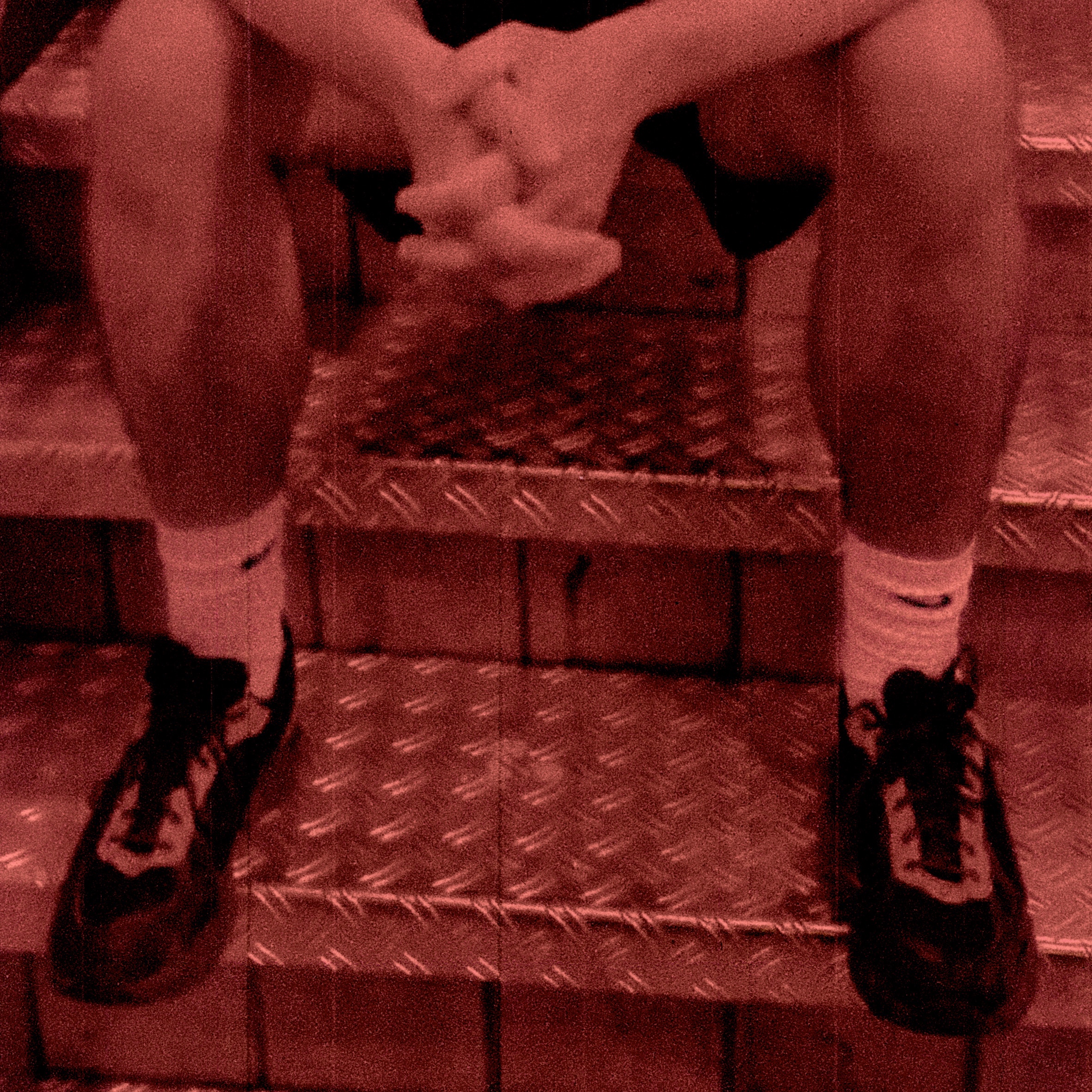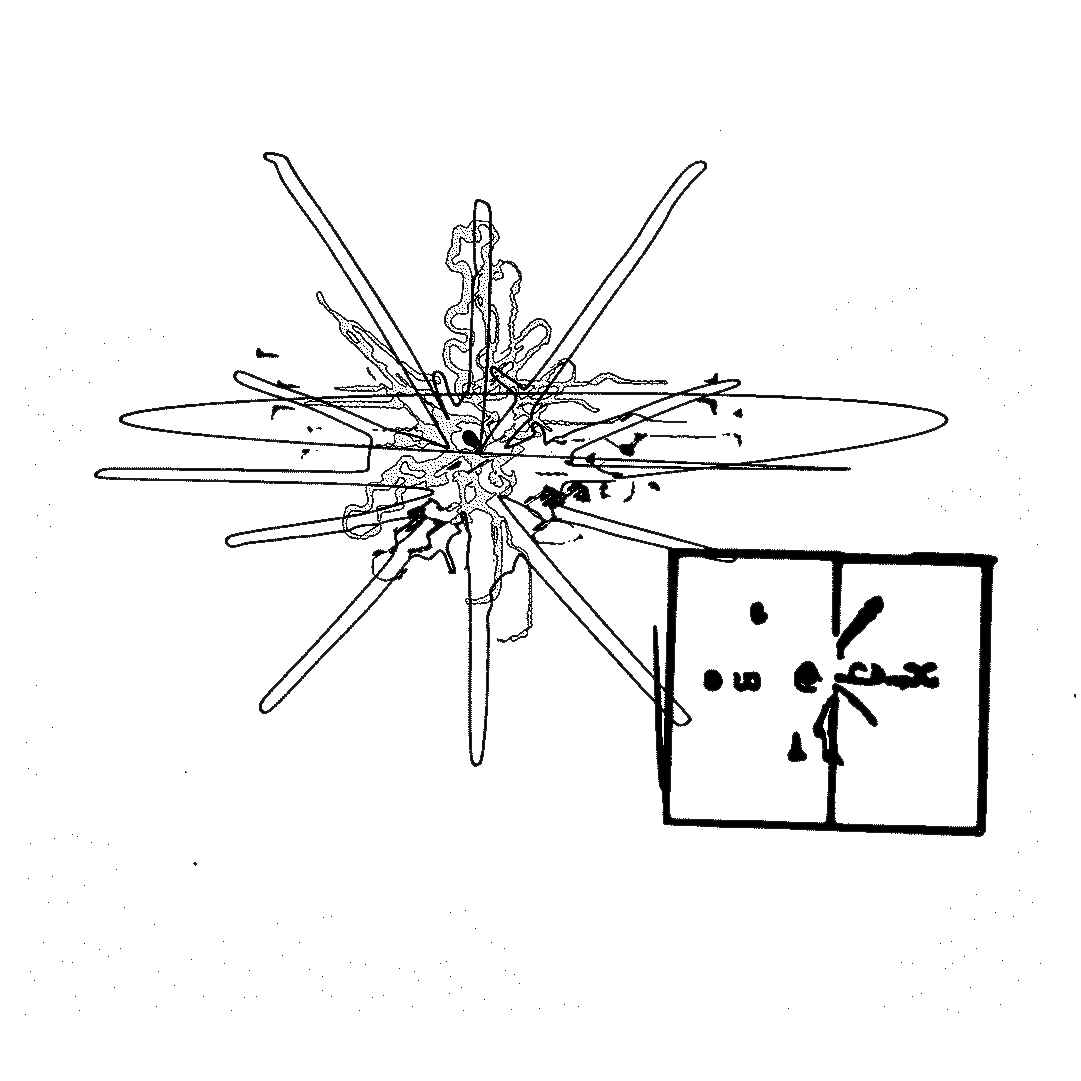Timmerman
Timmerman juggles with a job in the communications team of Horst Arts & Music, being the co-promoter of Supergay and, of course, his own DJ-career. Spanning over eight years and becoming ever more refined, the latter covers the biggest chunk of what you’re about to read. We will also discuss the death of presale, ever-faster-paced music and Call of Duty.
︎︎︎ Soundcloud
︎︎︎ Funke exclusive set
︎︎︎ Spotify Playlist

— Can you tell us how Toon Timmerman became Timmerman?
Growing up, music was already everywhere. Although my parents are obsessed with classical music, the gift of music itself was handed to us on a silver platter at home. The first records I remember buying were ‘Illmatic’ by Nas and ‘The Eminem Show’ - carefully covering the “Parental Advisory” sticker for my mother.
When my brother turned 16, he got a JB Systems speaker-meets-turntable. I was 11 at the time. We both started toying with that and discovered the basics, like beatmatching, together. My brother and I played together for some time, later he discovered the visual arts.
On the built-in radio of my alarm clock I used to listen to Dave Clarke’s show ‘White Noise’ on Studio Brussel. I didn’t really like it, but was nonetheless triggered by this new style of unconventional and fast-paced electronic music I'd never heard before.. At the age of 14 I was spinning drum and bass sets at the local scouts parties and youth centers.
Not too long after, and through my first night outs at places like Café d’Anvers and Decadance, I got into tech house and even had a brief obsession with what deejays like Joris Voorn were doing at the time. Later on, I stumbled into house music - chasing a sound that had more depth.
“ I grew closer to myself and what I stand for musically. There's more focus now. Rather than being only a party DJ, I want to contribute to something meaningful.”
— Eight years ago you moved to Ghent and started studying here. Can you explain how the city and scene shaped you?
During a night out in Decadence and throughout the set of a rather mediocre DJ it dawned on me: maybe I could do a better job than him. I already had some experience and I certainly had a story to tell. I started stalking a lot of people to give me a shot and on a Wednesday evening in 2016 it happened: I opened Decadence for Amelie Lens.
In 2017, I won a pretty influential DJ contest - after which it all developed very fast those first years. Maybe even a little too fast at times. I got huge opportunities to play big festivals like Tomorrowland and Pukkelpop while I was still very much in search of what I actually stood for musically.
As time moved on, I gradually started to feel that I could be more significant in other places, playing for crowds and communities my sound actually resonated with. I still vividly remember playing two extended back2back sets on the same New Years night; one with Jonathan (Uni Son - or Just Nathan back then) and a second one with Stijn (Sixsixsixties). I had been looking up to them for quite some time, and felt a little insecure in an attempt to keep up with them behind the decks. It was an eye-opener really. They showed me there's so much more to the craft of deejaying than what I thought I already knew at the time. Thank you Jona & Stijn!
By going out more myself, by meeting new people and by dedicating most of my free time to music, I grew closer to myself and what I stand for. There’s more focus now. Rather than being only a party DJ, I want to contribute to something meaningful. To a community.
“
There’s a substantial queer community here in Ghent that deserves and needs quality events. That’s why we founded Supergay.
”
— How did Ghent change over the past years?
I can’t help but feel like there was more going on when I first got here. Household names like Alpha, Nachtvogels and KERK all stopped over time. These were all institutions that influenced me as a person so I was sad to see them go. At the same time, the Brussels’ scene as we know it today, started to emerge. It kind of became more fashionable to play, or organize, events there.
The last couple of years venues such as Broei, Minus One and Funke have given more opportunities to young promoters and artists. I feel like nowadays in Ghent, a young, vibrant and tight-knit scene is coming up again.
Together with my friends Jonathan (Uni Son) and Zakarya I try to contribute to the local scene as well, by founding Supergay. We've been going to plenty of gay parties all over Belgium, which were hardly ever held in Ghent. We felt a need for quality and safe events by and for the vibrant LGBTQIA+ community here. They deserve better and safer queer parties. So you could say we founded Supergay out of an urge. Musically, we focus on quality house and techno music and provide a platform for LGBTQIA+artists.
“
There’s a new generation. They are young, wild and free and their music reflects that as well. High tempos, high energy and very accessible in its own way.
”
— What do you make of the last two years - the post-covid scene, so to speak?
The landscape is even more saturated with new clubs, concepts and festivals - there’s more going on than ever. I guess a lot of people get lost in this “oversupply”, deciding very late and on an ad hoc basis which event they will attend - which kind of kills presale.
In terms of the audience itself, there’s an influx of a new generation. They are young, wild and free and their music reflects that as well. It features high tempos, high energy and is very accessible in its own way. Youngsters are triggered by this kind of “TikTok techno” and that makes for the two sides of the coin: substance and form. Everything is so fast-paced - both the music as the content that is being generated. At times I find it quite difficult to keep up with it all.
Coinciding, a countermovement is happening - as it always does. Thesis and antithesis. Think about the renaissance of a more minimal sound in Brussels and all the events, artists and crowds focusing on decent house music.
Everyone flows in their own way, of course. Some people might enter the nightlife scene through a snappy hardtechno video on social media, to find out later there’s way more to nightlife than that. I didn’t come straight from the underground myself, so who am I to judge?
— Away from all the (fast-paced) noise, where’s your happy place?
I spend a lot of time in restaurants and would dare to call myself a foodie but I also enjoy spending a lot of time at home, which always surprises people. The combination of an intense daytime job, organizing events and DJ-ing can become quite exhausting. I need plenty of time to myself. Otherwise, I would be letting myself down by pleasing other people.
To that extent I claimed a full floor in the house I share with my boyfriend. My man cave features a dj-booth, a desk, a sofa, a beamer and a Playstation. I bought the latter during the pandemic. In isolation, me and a couple of my friends used to play Call of Duty Warzone online - just drinking some beers while violently shooting each other up. I also thoroughly enjoyed Red Dead Redemption and Uncharted, so anyone with leads on a game with an outstanding campaign mode; come forth.
Interview with Timmerman + words by Hans Empereur
